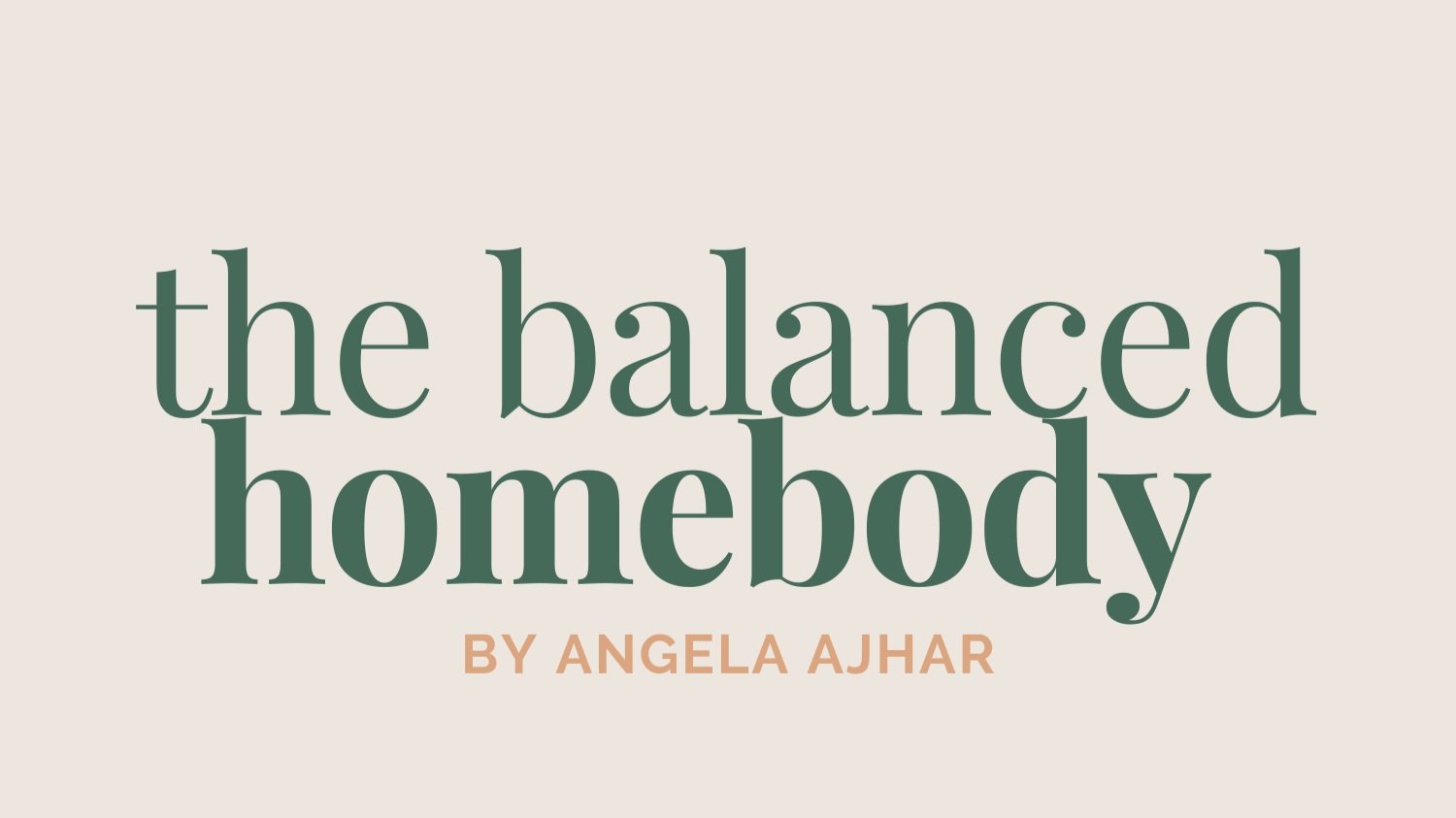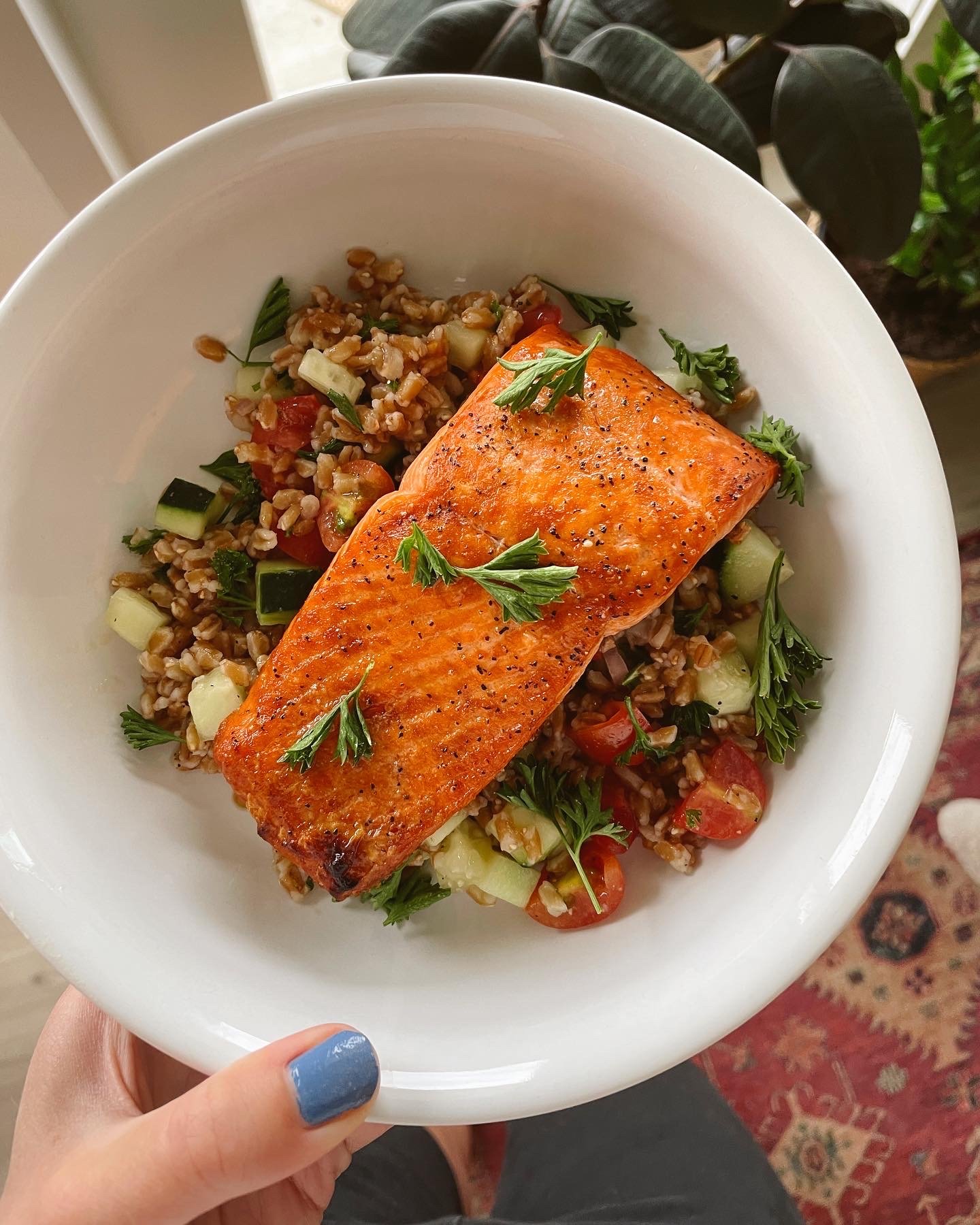What Can Balanced Eating at a Summer Gathering Look Like?
We welcome the opportunities that summer brings to spend time outdoors, reconnect with family and friends, and relax and unwind. But for many, summer also brings a lot of stress that can lead to imbalance in their lives.
Summer is an especially difficult season to maintain a balanced relationship with food and your body. Some reasons for that include:
Changes in routine due to children being home from school for the summer (plus their summer activities), travel, or the uptick in social activities.
More social activities surrounding food and the inability to always control the food choices - barbecues, camping, vacations, being a guest at someones house, etc.
More time spent being active may mean different energy needs and an increase in hunger or cravings for carbohydrates.
The temperature affecting our hunger and desire to cook.
Body insecurities surfacing with the need to wear warm weather-appropriate clothing (tank tops, shorts, swimsuits).
Increase in exposure to other bodies in less clothing, leading to body comparison and body checking or hyper-vigilance around food choices.
It’s 100% okay and completely normal if you’re struggling with finding balance this summer. You’re already balancing so much!
This summer is the first in a while that we’ve had the chance to safely and comfortably (it’s okay if you’re not there yet!) reconnect, explore, and travel. With so much going on, it’s hard to remember to check in with yourself and even harder to remember how to give yourself grace as the pendulum of balanced eating sways back and forth.
So, what can balanced eating look like at a summer bbq (and beyond)?
Most people find themselves pressured into going all-in or all-out in the summer.
An all-in person makes health their top priority, aims to eat clean 100% of the time, focuses on attaining or maintaining their summer body at any cost. If they eat outside of their comfort zone, they may feel guilt or shame afterwards and compensate through restrictive eating or over-exercising the next day.
They work so hard to be on top of their health that they miss out on the valuable social and cultural aspects of summer which ironically becomes detrimental to their wellbeing. They pass on foods that they enjoy at a bbq in order to stick with their diet or skip events all together out of fear for what foods are being served. Because of this, they are unable to truly be present to soak in the happy moments with friends and family that summer brings.
An all-out person chooses to shift their entire focus towards having fun and taking advantage of the foods that are available during this season without regard for their body’s needs. They tend to over-do it at the bbq buffet because once they’ve made the decision to not to care about nutrition, they want to cram as much fun food into their days as possible before summer ends. (This is similar to last supper eating that we see in people who binge the night before starting a new diet. When you think the foods won’t be available or allowed much longer, you tend to overeat to get your fix before being restricted again.)
A balanced eater has the best of both worlds. They commit to honoring their body’s needs while also honoring their tastebuds. They know that nourishment goes beyond just physical nutrition so including enjoyable seasonal foods into their life is just as much of a priority as including nutrient-dense foods. They understand that all foods contribute some nutrients (ex: burger with a bun contains protein and carbohydrates) but a food doesn’t have to in order to be worthy of a spot on their plate. Instead of thinking about what they need to leave off their plate, they look for opportunities to add nutrition and taste.
When building a plate at a bbq buffet line, a balanced eater browses their options with these three things in mind:
What looks most appealing to them in terms of flavors, textures, temperature, and overall taste satisfaction. Foods of tradition and nostalgia or foods that may only be made once or twice a year are top on the list here!
Their energy needs both now and in the near future. They check in with their current hunger levels and consider what activities (like hiking, beach volleyball, or kayaking) they might be doing later that they might need fuel for.
How different foods may feel in their body later. They don’t always avoid foods that may not sit well; sometimes eating something satisfying is more important to them in the moment than a potential stomachache or feeling bogged down later. However, if they’re planning on doing an activity like hiking or swimming later, they may choose something a little more energizing.
Balanced eaters focus more on the tradition and enjoyment of food and less on worrying about what goes into a food. All-in people may choose a dish with the healthiest ingredients or least amount of calories possible or a dish that aligns more with their healthy eating image than with what foods they actually enjoy eating. A balanced eater chooses what dish to bring to the party based on foods that hold traditional significance, are enjoyable to eat and make, and/or what they are really in the mood for. A balanced eater can still choose to bring a salad if that’s what they want and enjoy making, or if they notice most of the dishes on the sign up sheet are heavy and they want to offer a lighter side.
As I mentioned earlier, with the warmer weather comes the need for less clothing to feel at a comfortable temperature and more exposure to other bodies in less clothing, too. It also often means more social events around food and with people you may not see as regularly outside of the summertime. Diet and food talk almost inevitably comes up during discussion especially among women. It’s woven into our culture to bond over judging our own bodies and food and to push that judgement onto other bodies and food choices. This talk is harmful to not only yourself, but to others around you. What you say about one body, you say about all bodies.
Balanced people shift the conversation away from negative discussions about food and bodies. If they feel safe and comfortable to do so, they establish boundaries with loved ones. And they revel in meaningful conversation because once we stop shaming ourselves and others, we’re able to discuss the things that really matter to us — our passions, interests, and thoughts.
A few examples of boundary setting:
When someone won’t stop talking about their body or diet, change topics and say, “You know, I’d love to hear more about…” You can ask them about their new job, their dog, their recent trip to Europe, the hike they posted about on Instagram a few days ago, etc.
When you engaged in diet and body talk in the past, friends and family may not know that you’re trying to work on it. So if someone keeps bringing up your body or diets, interrupt them and say, “I’ve really been working on having a healthier relationship with my body and food recently. I’d love to tell you more about [new topic], though.” And share something new and exciting that’s going on in your life.
If someone keeps commenting on food options or yours/theirs/someone else’s food choices, shut down the negativity by saying, “Variety is so important. I’m really enjoying this [insert dish] that so and so brought!”
Sometimes people really can’t take a hint or they do not understand that their well-meaning comments are harmful. If you are unable to get through to them, consider walking away from the conversation or continue to cut them off and redirect the conversation until they finally get it. If you don’t feel safe to set boundaries and are confident that your requests won’t be met with kindness or respect, you may need to shift to your internal work to remedy their harm instead.
We’ve spent a lot of time today talking about eating and food. But you know what the most important part of a barbecue or summer gathering is? The friends and family that surround you. The beautiful weather. The fun seasonal activities that nourish your soul. Let’s allow ourselves to enjoy the food served, but let’s not forget that it’s the least interesting, least important part of summer.

















